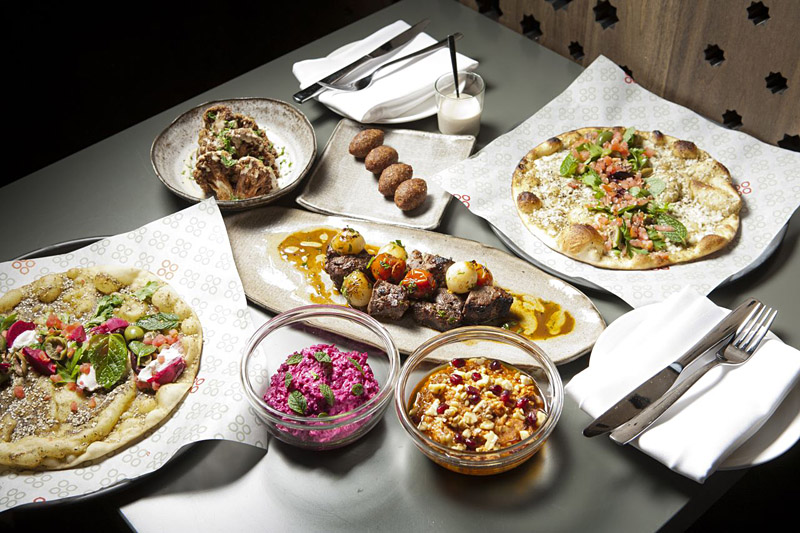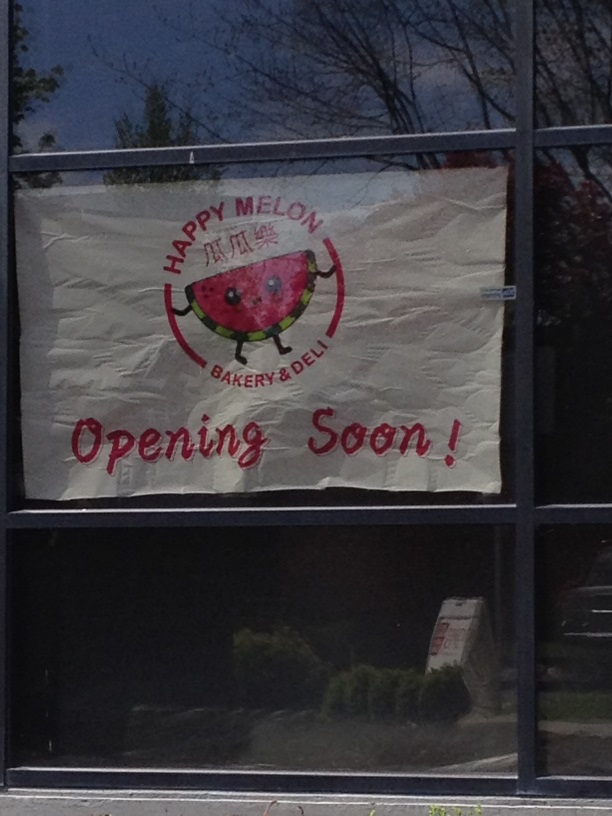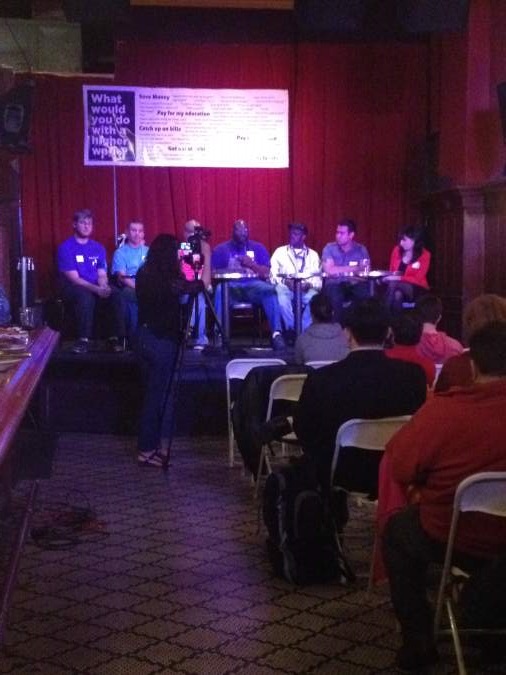Like small brads or buttons, small plates have a way of getting lost. What’s often overlooked in the now-ubiquitous tirades against tapas-style cuisine is how frequently servers fail to write down an ordered dish or fetch it from the kitchen window. And with so many tiny concoctions on the table, it’s usually only at meal’s end when diners realize they’ve been shorted a glazed pork belly or inexplicably denied a smattering of kale gnocchi.When little dishes don’t show, restaurants typically issue an apology or a free drink. Not so at Mamnoon, the three-month old Lebanese-Syrian restaurant near the scorching-hot corner of Melrose and Pike. Mamnoon keeps track of orders ably, but on my second visit, a kebab never arrived. I’m reluctant even to bring up the error, lest you get the impression that Mamnoon is the kind of restaurant at which you have to nanny your server. It is not. But if I don’t mention the missing kebab, I can’t tell you how the manager handled the situation: He brought us soup instead.Cynics may claim that soup’s a cheap gesture compared to a cocktail, but it’s hard to imagine a lovelier way for a restaurant to say it’s sorry. Two steamy glass teacups of peppery red-lentil soup, smooth and thick as jarred gravy, quickly convey that Mamnoon intends to welcome its guests, not just divert or dazzle them.Hospitality is a hallmark of the Middle East, a cultural value so pervasive that even Western tourists primed by guidebooks are blown away by cabbies offering them cigarettes, fellow soccer spectators offering them potato chips, and strangers offering to take them home for coffee or tea. Practitioners trace the tradition back to Biblical times, when a group of Sodomites insisted upon raping a visiting band of foreigners. They were thankfully spared such a fate by the patriarch Abraham, who instead ushered them into his tent, washing their feet and feeding them. That inherited warmth pervades Mamnoon, but the sleekly modern restaurant isn’t merely gliding by on bonhomie. To a small plate, the food’s terrific.It’s worth noting that upscale Lebanese restaurants in Seattle are graded on a pretty significant curve. Until Mamnoon opened, Cafe Munir was the only local source for meticulously made lebneh and tabbouleh. Munir remains the better date destination if your sweetie’s notions of romance include baba ghanoush: The candlelit Loyal Heights restaurant is packed with old-world charm, while Mamnoon’s sweeping, clean-lined room—minimally furnished with track lighting, black tables, black chairs, and a freestanding black wall between the dining area and kitchen—has a jangly disco energy.But if you’re going out with a group or craving more vivid flavors, Mamnoon’s the better restaurant. The countless dinner-party guests who encouraged hosts Wassef and Racha Haroun to open Mamnoon were right to say that Seattle needed this restaurant.The Harouns, former Microsoft employees and rookie restaurateurs, hired Barbara Massaad to help develop Mamnoon’s menu. Massaad wrote the first cookbook dedicated to ma’noushe, the seasoned flat bread sometimes described as Lebanese pizza, and she clearly spent time with Mamnoon’s oven when she visited from Beirut. Under chef Garrett Melkonian, late of the Tom Douglas empire, Mamnoon is producing a series of sensational breads which hardly need to be freighted with toppings or dragged through a dip to be appreciated.Still, if a disc of white or wheat pita-like bread plucked hot from the oven doesn’t sound like a satisfactory lunch, try the ma’noushe, recklessly splattered with briny white cheese; split green olives; cherry tomatoes, redder than they have a right to be in January; vibrant sprigs of parsley; and young olive oil. Underlying the garnishes is a base coat of za’atar, the salty, oiled elixir of dried thyme and toasted sesame seeds that’s served alongside Mamnoon’s complimentary baskets of soft, soulful pretzel bars and chewy rounds of Arabic bread, curled at the edges and branded with scorch marks. The jibneh wi za’atar ma’noushe can be further bedecked with shish taouk chicken, but the standard version needs nothing, other than perhaps a committed carnivore to fawn over it, stunned by the prismatic flavors of vegetables and herbs. Biting into the man’oushe is like chewing on an Arabic spice bazaar.Ma’noushe isn’t as familiar to American eaters as hummus or falafel, so Mamnoon’s trying to stoke the preparation’s local reputation by serving it at dinnertime, neatly rolled and quartered. (Other concessions to Western expectations include ma’amoul, customarily a filled blimp of a cookie, remade as a tart.) Ma’noushe is very much a street snack, so the tactic is tantamount to putting croque monsieurs on a menu dominated by duck a l’orange and sole meuniere. But the restaurant is hereby permitted to do whatever it takes to sell more of its wonderfully satisfying man’oushe at its glassed-in takeout counter, which occupies the restaurant’s front half.Other lunch options include griddled haloumi-cheese sandwiches and falafel, which reappears on the evening’s list of mezzes. The rough-skinned falafel, fresh and green within, are just a few cubic centimeters bigger than a marble, and consist primarily of exterior crunch. Tightly wound grape leaves, slicked with oil and stuffed with lemony rice, are also elegantly sized.Mamnoon has a bad habit of serving dips while the accompanying bread’s still baking, but for guests who order the muhammara, that’s a problem likely to be solved with a spoon. The paste of ground walnuts and pomegranate molasses is something like desert candy, saved from its own sweetness by a sharp dose of cumin and pepper. I’m not sure if muhammara is the French onion dip of the Middle East, but it’s awfully easy to imagine eating it for hours.Walnut and pomegranate also figure on the signature cocktail menu, an inventive congress of global spirits and instantly recognizable Arabic pantry touchstones. Although drinking’s not the main draw here—there’s no seating at the nook which functions as the bar—Mamnoon has also assembled a smartly sourced wine list which never strays more than 65 miles from the Mediterranean.If Mamnoon has a weakness, it’s perhaps a slight over-reliance on the same seasoning scheme: The garlic, cumin, parsley, and sumac can add up quickly. But it’s easy enough to order around palate fatigue, seeding the table with a bright swirl of tahini and grated beets; oblong kibbeh patties, featuring impeccably spiced beef and a pine-nut crust; and deeply fried cauliflower florets, their inbred bitterness broken by a cooling splash of cucumber-yogurt sauce.And the kebab which sparked our soup delivery was excellent. Despite its name, the dish has nothing to do with dried-out meat on sticks. Rather, Mamnoon’s kebab is a skillet of tender beef-tenderloin hunks, blistered tomatoes, and sweet pearl onions, finessed with allspice and olive oil. Like the restaurant, the marvelous dish was very much worth the wait.hraskin@seattleweekly.comPRICE GUIDE Ma’noushe jibneh wi za’atar $8 Kibbeh $8 Fried cauliflower $7 Grated beets $10 Muhammara $12Kebab $28
Like small brads or buttons, small plates have a way of getting








